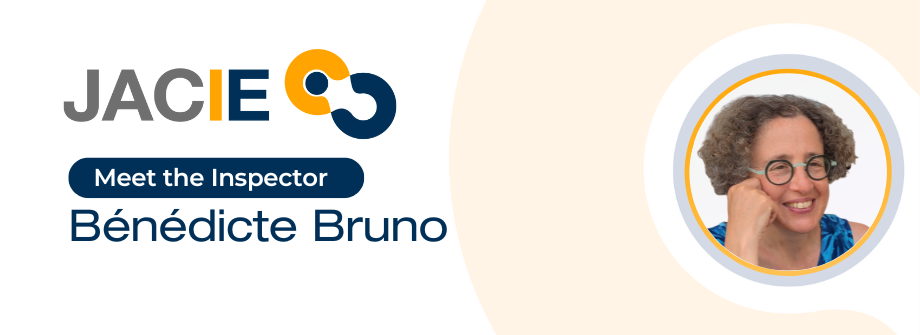
Inspectors are the backbone of JACIE; without them, there is no certification process. Becoming an inspector is a wonderful way to contribute to maintaining global quality standards. As the number of JACIE applications has increased, we are constantly looking for new inspectors to join our ranks. At the moment, we are particularly keen to hear of German, French and Spanish speaking Clinicians and Quality Managers.
Each month, you will have the opportunity to meet with one of our JACIE Inspector who will share his/her experience.
Read our interview with Bénédicte Bruno.
Introduce yourself and your role(s) and position(s) within EBMT and outside of EBMT
I am a paediatrician and head of the paediatric transplantation unit at the University Hospital of Lille in France, where we perform around 30 HCTs per year. I have been a JACIE inspector since 2012, specialising in paediatric clinical inspections.
Why did you decide to become a JACIE inspector?
I became a JACIE inspector to learn about practices in other transplant centres. I also really enjoy meeting and collaborating with fellow JACIE inspectors.
What has been the most memorable inspection that you have ever done?
One of the most memorable moments was during an inspection in Brussels, where the hotel surprisingly had no butter at breakfast—a true challenge for a French person! Jokes aside, what stands out most are the moments when I meet doctors or coordinators who are doing their best under challenging conditions, sometimes feeling overwhelmed and alone. These experiences leave a lasting impression.
What ‘keys to successful JACIE certification’ can you share with us?
There are two key elements to achieving successful JACIE certification:
- Ongoing Commitment – Certification shouldn’t be something you only focus on in the year leading up to an inspection. It should be a continuous process. You're never simply "certified"—you are always in the process of certification. To manage this, it helps to dedicate regular time to JACIE activities (e.g., two hours each week, consistently throughout the year).
- A Dedicated Quality Manager – Having a quality manager who is partly dedicated to your unit makes a significant difference. It streamlines the entire certification process and ensures that quality systems are maintained effectively.
How has your career/work benefited from being a JACIE inspector?
Being an inspector requires an understanding of the JACIE standards, which has strengthened my own knowledge and practices. It also offers the opportunity to step outside my own unit and engage with professionals—nurses, doctors, and inspectors—from other centres.
Do you have any tips or advice for anyone who aspires to become a JACIE Inspector?
You need to be very well organised. Here are some personal tips:
- I limit myself to one or two inspections per year.
- I do most of the preparation work before the inspection. I go through the checklist in advance, reviewing all the documents provided by the centre and requesting additional ones as needed.
- I carefully study the annual report—it contains valuable insights on many aspects.
- For onsite checks, I note in advance who I need to meet for each item.
- During the visit, I make sure to complete the checklist—either during interviews or during any waiting times. My goal is to have the checklist fully completed by the end of the inspection.
- On the return train, I write the report while everything is still fresh in my mind.
- Finally, don’t underestimate the importance of team spirit and conviviality with fellow inspectors. I always try to find good restaurants for the two evenings we spend together—it adds warmth and camaraderie to the experience.